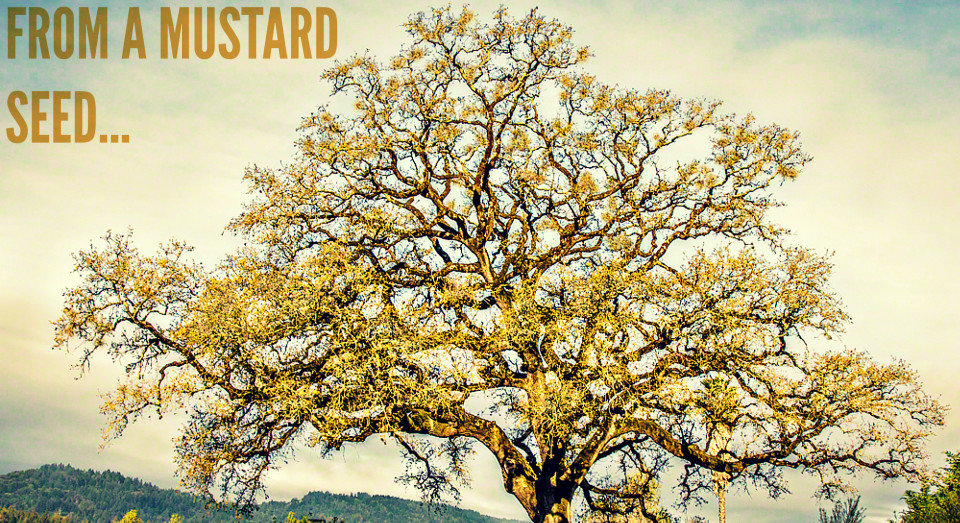Jesus put another parable before them, saying. The kingdom of heaven is like a grain of mustard seed, which a man took and sowed in his field. It is the smallest of all seeds, but, when it has grown, it is the greatest of shrubs, and becomes a tree, so that the birds of the air come and make nests in its branches.
The point of the parable in Matthew and in Luke is quite different. Matthew stresses the smallness of the seed which Luke never even mentions; and Matthew’s point is that the greatest things can start from the smallest beginnings and so does the kingdom of heaven. Luke’s version leads up to the birds making nests in the branches. In the east the regular symbol of a great empire was a mighty tree; and the subject nations who found shelter and protection within it were typified by birds in the branches (Ezekiel 31:6, 17:23). As we have seen more than once, Luke is the Universalist who dreamed of a world for Christ; and his point is that the kingdom of God will grow into a vast empire in which all kinds of people and nations will come together and will find the shelter and the protection of God. There is much in Luke’s conception that we would do well to learn.
(1) There is room in the kingdom for a wide variety of beliefs. No individual and no church has a monopoly of all truth. To think ourselves right and everyone else wrong can lead to nothing but trouble and bitterness and strife. So long as beliefs are stemmed in Christ they are all facets of God’s truth.
(2) There is room in the kingdom for a wide variety of experiences. We do infinite harm when we try to standardize Christian experience and insist that everyone must come to Christ in the same way. One person may have a sudden shattering experience and be able to point to the day and the hour, even the very minute, when God invaded his or her life. Another’s heart may open to Christ naturally and without crisis, as the petals of the flower open to the sun, both experiences come from God and both these people belong to God.
(3) There is room in the kingdom for a wide variety of ways of worship. One person finds contact with God in an elaborate ritual and a splendid liturgy; another finds him in the bare simplicities. There is no right or wrong here. It is the glory of the Church that within its fellowship somewhere each of us will find the worship that brings us to God. Let each of us discover it for ourselves, but let us not think our way the only way and criticize another’s.
(4) There is room in the kingdom for all kinds of people. The world has its labels and its distinctions and its barriers. But in the kingdom there is no distinction between rich and poor, small and great, famous and unknown. The Church is the one place where distinctions have no legitimate place.
(5) There is room in the kingdom for all nations. In the world today are many national barriers; but none of them has any standing with God. In Revelation 21:16 we are given the dimensions of the holy city. It is a square each of whose sides is 12,000 furlongs. 12,000 furlongs is 1,500 miles; and the area of a square whose sides are 1,500 miles is 2,250,000 square miles! There is room in the city of God for all the world and more.
William Barclay Professor of Divinity and Biblical Criticism University of Glasgow
